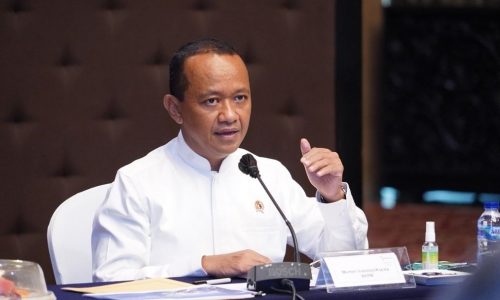The Comprehensive Investment and Policy Plan (CIPP) for the funding of the Just Energy Transition Partnership (JETP), which was initially scheduled for release on Wednesday, August 16th, has been postponed until late 2023.
Dadan Kusdiana, the Secretary-General of the Ministry of Energy and Mineral Resources (ESDM), explained that the delay is due to the need for a thorough reassessment of the plan’s details to ensure its quality.
The Ministry of ESDM also aims to engage in public consultations before finalizing the plan.
“We were planning to do it yesterday, allowing time for public discussion. We will make the document available for everyone to see once it’s completed. So, the government will hand it over, engage in public discussions, and then launch it,” Dadan stated during an interview at the Ministry of ESDM in Jakarta on Wednesday, August 16, 2023.
Dadan explained that several elements of the CIPP that will be evaluated includes data concerning non-state-owned power plants or those not operated by the state-owned utility PLN. “This is what we are currently reevaluating,” he remarked.
Dadan clarified that the public discussion will be conducted online, enabling all citizens to read the CIPP JETP document and provide feedback.
Environmental organization objects
Suriadi Darmoko, a campaigner from 350 Indonesia, noted that the JETP funds should be directed towards empowering local communities with energy autonomy. Consequently, he emphasized that the funding from JETP should be prioritized for communities rather than conglomerates in the energy sector, particularly those companies that are already well-established and renowned.
“Since the JETP secretariat was established or even since the JETP agreement was made, we haven’t heard any information from the government about any portion of JETP funding being allocated to support community-based renewable energy development,” Suriadi mentioned during an online discussion titled “Where Should JETP Funds Flow?” on August 15th.
He pointed out that the government has provided information primarily related to funding for successful businesses that have profited from coal or fossil energy. According to Suriadi, these entities should independently transition their operations to new and renewable energy sources (EBT) as part of their commitment.
“We noticed that when JETP was signed, many of these businesses expressed interest in transitioning their operations and would continue to be supported by JETP funding,” he added.
On the other hand, Suriadi stated that large-scale green projects undertaken by the state-owned utility PLN should not receive JETP funding since the state-owned enterprise has already derived significant profits from fossil energy.
Therefore, he asserted that JETP funding should be primarily directed towards communities, as the impact of such funding is readily apparent and clear.









